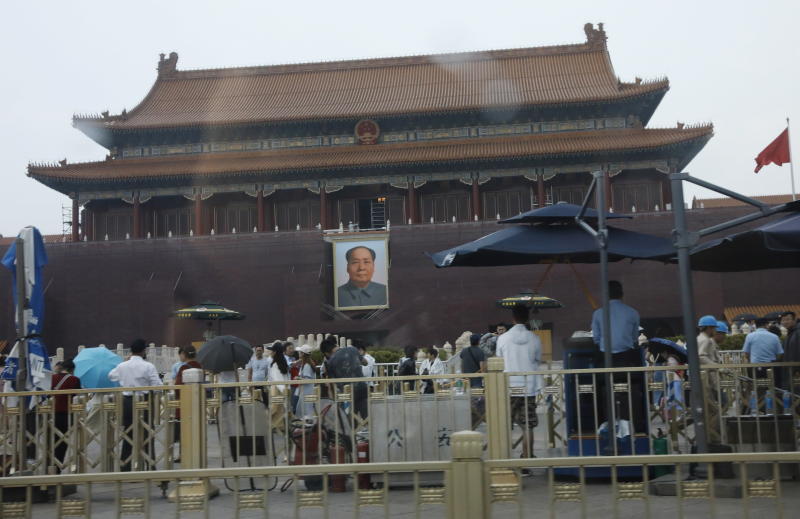BRUSSELS: The European Union on Tuesday urged China to lift the veil of silence it has dropped over the Tiananmen Square crackdown, saying it must acknowledge those killed or imprisoned in the bloody events of 1989.
On the 30th anniversary of the brutal suppression of pro-democracy protests in Beijing, the EU called for the release of human rights activists detained by the Chinese authorities.
The communist government censored any discussion of the protests and military clampdown, which left hundreds, possibly more than 1,000 people dead, in the run-up to June 4 in a bid to prevent Chinese people ever learning about what happened.
EU diplomatic chief Federica Mogherini said the bloc “continues to mourn” those killed in the “brutal repression” at Tiananmen.
“The exact numbers of those who died and were detained on 4 June and in the subsequent crackdown have never been confirmed, and may never be known,” Mogherini said in a statement.
“Acknowledgement of these events, and of those killed, detained or missing in connection with the Tiananmen Square protests, is important for future generations and for the collective memory.”
Mogherini’s statement comes as the EU charts a tricky balancing act in its relations with the Asian giant, seeking to press Beijing to improve its human rights record without alienating it.
Europe also hopes to make a partner of China in its efforts to maintain the multilateral global trading system in the face of US President Donald Trump’s “America First” approach, while fretting about Beijing’s subsidies to its industries, particularly steel.
This year has seen some rare public comment on Tiananmen from Chinese officials, but only to defend the crackdown, with Defence Minister General Wei Fenghe on Sunday insisting it was the “correct” policy to end “political turbulence”.
The state-run tabloid Global Times likewise hailed the government’s handling of Tiananmen as a “vaccination” for Chinese society “against any major political turmoil in the future”.
The spring of 1989 saw Chinese students and workers gather at the symbolic heart of power in Beijing to demand democratic change and an end to corruption, inspiring protests across the country.
After seven weeks of demonstrations, the government sent in tanks and troops, who chased and killed demonstrators and onlookers in the streets leading to Tiananmen Square on June 4. (AFP)






